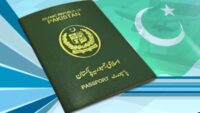Baaghi TV approached a leading lawyer of the country who excels in corporate matters regarding civil and corporate lawsuits. We discussed at length the case of Royal Palm Golf & Country Club vs Pakistan Railways claim and dispute over the infamous Royal Palm Case.
After careful deliberation and many hours of browsing the detailed court judgement, this is what we got from the eminent lawyer in response to the verdict. As the case is now settled and judgement is out any debate on the issue cannot be contemptuous we have been told, hence now Baaghi TV is doing this series of reactions from numerous eminent lawyers regarding this high profile case that gripped the country and investors for many years.
In light of the Supreme Court’s decision of Ishaq Khan Khakwani and another versus Railway Board through its Chairman and others (2019) (the “Judgement”), the following points appear to be of relevance to Mainland Husnain Pakistan Limited (“MHPL”);
Public Interest Considerations
In the exercise of its powers under Article 184(3) of the Constitution, the Supreme Court (the “Court”) takes into consideration the question of whether an action by the Government is in the public interest. Under Paragraph 24 of the Judgement, the Court has stated that the Implementation Agreement (the “Agreement”) has caused losses to Pakistan Railways and, consequently, to the national exchequer.
However, the Royal Palm Golf & Country Club (the “Club”) contributes PKR 100 million annually to the national exchequer, including education cess and other provincial taxes. In the event that the Agreement continues to operate without external pressures, the Club shall contribute around PKR 15-16 billion to the national exchequer in the next few years. Under the former management, Pakistan Railways was only being paid PKR 1 per month. However, pursuant to the Agreement, the management of the Club has paid Pakistan Railways more than PKR 550 million.
Furthermore, pursuant to Pakistan Railway’s wishes to revise the terms and conditions of the Agreement in 2012, favourable terms were agreed through the National Accountability Bureau (“NAB”) and approved of by the Executive Committee of the Pakistan Railways. A report titled “Report on Behalf of National Accountability Bureau, Islamabad on the Affairs of Pakistan Railways’ was filed by NAB before the Court in September 2012, under which one of NAB’s recommendations included the immediate implementation of the revised terms. These were to result in the generation of additional revenue to the estimate of PKR 15-16 billion for Pakistan Railways for the duration of the Agreement. An amount of around PKR 7.9 billion was to accrue to the national exchequer during this period by way of taxes.
However, the then-Minister of Pakistan Railways, Khawaja Saad Rafique, rejected these revised terms in 2016. It must also be noted that in January 2015, the Royal Palm Management had made yet another offer to Pakistan Railways, that of splitting the net profits by 50-50. However, this, too, was rejected by the Minister.
The above evidences the Royal Palm Management’s consistent efforts to maintain a business relationship with Pakistan Railways which is founded on good faith and transparency. The management of the Club has sought to ensure that no losses are sustained by Pakistan Railways. Instead of declaring that the Agreement is void, it may be argued that the implementation of the revised terms and conditions may be more.
Delay defeats equity
The Agreement was entered into with Pakistan Railways on 26th July 2001. However, the Agreement has been declared void recently, in 2019.
Since the Agreement came into effect and up till the Judgement, the management of the Club has, over the duration of almost eighteen years, invested invaluable time, effort and resources in implementing the Agreement, including but not limited to constructing, maintaining and operating the Main Clubhouse Building, the Sports Center and accompanying facilities. This was Phase I of the Agreement and was completed in 2003 with a documented investment of PKR 1.5 billion.
The judicial system operates on the principles of fairness and speedy delivery of justice. “Delay defeats equity” is a well-established principle of law, as equity aids the vigilant and not the indolent. (see generally, Akram Rashid versus Hamid Ali Khan, 2015 CLC 1290 Islamabad, Nawabzada Muhammad Zaman Khan versus Municipal Committee, Shahadpur, 2014 MLD 1417, Pakistan Industrial and Commercial Leasing Limited versus Haq Knitwear (Private) Limited, 2009 PLD 52, Government of Punjab (health Department) versus Naila Begum, 1987 PLD 336).
A delay in the enforcement of rights must be explained by cogent and reasonable grounds. This principle rests on the foundation that a lapse of time creates rights in favour of the other party. It is arguably unfair to deprive the Royal Palm Management of almost eighteen years of continuous time, effort and resources which were invested in the Club.
Unjust enrichment
In view of the above, allowing the Club to return to the possession of Pakistan Railways is “unjust enrichment”. This occurs when a party unjustifiably retains a benefit pursuant to a contract. In view of the above, Pakistan Railways has benefitted from the operation of this Agreement and now that the Agreement has been rendered void, Pakistan Railways is being allowed to unjustifiably retain a benefit. It is arguably unfair and contrary to the principles of justice that the Royal Palm Management’s continued, invaluable efforts over the period of eighteen years resulted in the construction and maintenance of the Club, golf course, Sports Center and accompanying facilities, only for the Club to eventually be deprived of the fruits of its labour.
Unjust enrichment offends the principles of economic justice embodied in the Constitution, under Articles 4, 23 and 24. (see generally, Sui Northern Gas Pipelines Limited v. Deputy Commissioner Inland Revenue and others 2014 PTD 1939; Messrs Pfizer Laboratories Limited v. Federation of Pakistan and others PLD 1998 SC 64; Ikram Bari and 524 others v. National Bank of Pakistan through President and another 2005 SCMR 100 and Pakistan Tobacco Company Ltd., and another v. Federation of Pakistan through Secretary, Ministry of Commerce, Islamabad and 3 others 1999 SCMR 382 rel)
This violates the principle of economic justice, as enshrined within the Constitution.
Arguments under the Contract Act 1872
- The three advertisements state that the lease or joint venture offer is for a site of 103 acres of land. It is contended that none of the advertisements mention that any area in excess of 103 acres was being offered. However, a fax dated 28.02.2001 sent by Waseem Aslam, Deputy Director Marketing of Pakistan Railways, suggests that the area of the land on offer was not restricted to 103 acres and that parties may bid for any area of land desirable by them. This was not accompanied by a fresh public advertisement to this effect.
While Pakistan Railways is found by the Court to have sent this letter in contravention of the principles of due process and transparency, it must be noted that it was not the responsibility of MHPL to issue a fresh public advertisement. Rather, it was the responsibility of Pakistan Railways to have followed the proper procedure for changing one of the essential terms of the project advertised. Therefore, Pakistan Railways made a mistake of law. This is governed by Section 21 of the Contract Act 1872 (the “Act”), which reads as follows;
Effect of mistakes as to law
- A contract is not voidable because it was caused by a mistake as to any law in force in Pakistan; but a mistake as to a law not in force in Pakistan has the same effect as a mistake of fact.
A plain reading of this provision reveals that a mistake as to law does not render a contract voidable and, thus, does not affect its validity. Furthermore, the inclusion of Phase III in the Agreement by Pakistan Railways was made in the absence of its mention in any of the advertisements. It is also noted in the Judgement that Phase II of the project was referred to only in the third advertisement but not in the documents preceding the Agreement. Arguably, it was the responsibility of Pakistan Railways to comply with the proper procedure for implementing the terms in the Agreement and its failure to comply with it amounts to a mistake on the part of Pakistan Railways. However, as discussed above, mistakes as to law do not render a contract voidable.
- It may also be argued that the above statements pertaining to the terms of the Agreement may be construed as “misrepresentations” made by Pakistan Railways. Section 18 of the Act reads as follows;
“Misrepresentation” defined
- “Misrepresentation” means and includes–
(1) the positive assertion, in a manner not warranted by the information of the person making it, of that which is not true, though he believes it to be true;
(2) any breach of duty which, without an intent to deceive, gains an advantage to the person committing it, or any one claiming under him, by misleading another to his prejudice or to the prejudice of any one claiming under him;
(3) causing, however innocently, a party to an agreement to make a mistake as to the substance of the thing which is the subject of the agreement.
In accordance with Section 19 of the Act, if consent to a contract is caused due to misrepresentation, then the contract is voidable but only at the option of the party whose consent was so caused.
Stay tuned to Baaghi TV for more updates.






